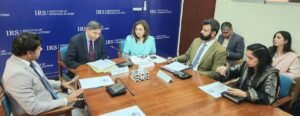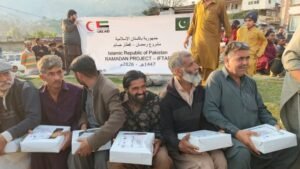
Strengthening bioeconomy momentum through innovation and investment in Asia and the Pacific
Bangkok – Asia and the Pacific is at a critical juncture in advancing a sustainable bioeconomy, as countries face growing pressure to balance economic growth, resource efficiency, and climate resilience. Innovative solutions in bio-based industries, ranging from renewable materials and sustainable agriculture to circular economic technologies, are emerging as key drivers of regional competitiveness, environmental sustainability, and food systems transformation.
Agrifood systems occupy the largest share of the bioeconomy, making innovations in agriculture, fisheries, forestry, and circular economy solutions central to transforming food and agriculture systems across the region. The Food and Agriculture Organization of the United Nations (FAO) has designated bioeconomy as a Programme Priority Area under its Strategic Framework 2022–2031, reinforcing its commitment to driving innovation, reducing food loss and waste, and fostering sustainable and inclusive growth.
“Our region has immense scope for advancing bioeconomy,” said Alue Dohong, FAO Assistant Director-General and Regional Representative for Asia and the Pacific. “To harness it, we must ensure sustainable supply of raw materials, clear and aligned policies, and collaboration across government, the private sector, academia, and producers.”
First-ever bioeconomy innovations and investment forum 2025 (BIIF)
The three-day forum kicked off in Bangkok today, bringing together nearly 600 participants from governments, embassies, the private sector, research institutions, investors, start-ups, and civil society. The forum provides a platform to showcase innovative solutions addressing food loss, waste, and unsustainable agrifood systems across crops, livestock, fisheries, and forestry.
Building on this collaborative focus, Dr Tatsanee Muangkaew, Deputy Permanent Secretary, Ministry of Agriculture and Cooperative, Thailand, highlighted “the country’s commitment to the Bio-Circular-Green (BCG) Economy Model and the Agricultural BCG Model. These initiatives aim to drive high productivity, standards, and income through sustainable, value-added agriculture, an approach seen as central to building a sustainable and resilient global agricultural sector”.
A key highlight of the forum is the Business-to-Business Networking Session, connecting more than 50 industry leaders and start-ups with investors and policymakers to scale successful bioeconomy models. With 56 expert speakers, discussions focus on the critical role of reliable and eco-friendly sources to drive the region’s bioeconomy forward.
“Bio-partnering is the overriding message, a commitment to building a community of partnerships around bioeconomy. These conversations are needed in our region, and together with our partners, we are ready to anchor this idea in the Asia and Pacific region. Our sincere thanks to the FAO for these efforts”, said H.E. Faiyaz Murshid Kazi, Ambassador of the People’s Republic of Bangladesh to Thailand.
Bioeconomy for sustainable transformation (BEST) framework and platform, the forum will discuss setting up a regional node of the Bioeconomy for Sustainable Transformation (BEST) Partnership, a global multistakeholder platform dedicated to scaling bioeconomy solutions for sustainable agrifood systems, and feed into the global bioeconomy summit in Ireland next year.
The BEST Partnership will foster collaboration among governments, investors, research institutions, and the private sector to turn bioeconomy innovations into scalable solutions. Aligned with the G20 Bioeconomy Initiative, BEST will strengthen policy coherence, enhance knowledge sharing, and support multilateral action to unlock the region’s bioeconomy potential.
“We hope that this forum serves as an initiative where governments, the private sector, civil society, researchers, and investors can share innovations, strengthen capacity for bioeconomy solutions, and forge partnerships,” said H.E. Millicent Cruz Paredes, Ambassador of the Republic of the Philippines to Thailand. “This regional platform demonstrates that coherent multilateral action is not optional, it is essential. FAO is committed to fostering these partnerships to enable the regions to build sustainable and inclusive bio-economies”, noted Lev Neretin, FAO Senior Natural Resources Officer.
The Bioeconomy Innovations and Investment Forum 2025 is organized by FAO in collaboration with 18 co-organizers and contributors, including the United Nations Conference on Trade and Development, United Nations Environment Programme, United Nations Economic and Social Commission for Asia and the Pacific, United Nations Educational, Scientific and Cultural Organization, United Nations Industrial Development Organization, United Nations Center for Regional Development, the Association of Southeast Asian Nations, Embassy of Bangladesh in Thailand, Biotec and the Malaysian Bioeconomy Development Corporation.







